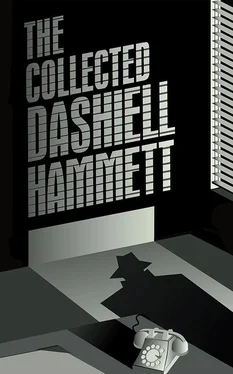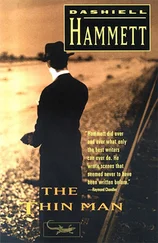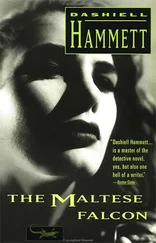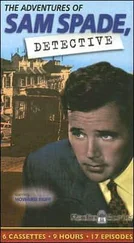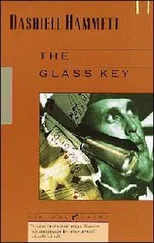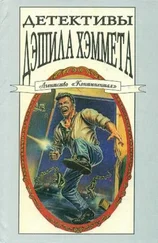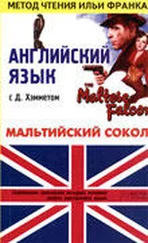“I didn’t make it up. Well, here we are. Come on, I’ll show you.”
We took him into my office. George Propper, who had been dozing in a chair in the front office, followed us in. I found the Trans-American Detective Agency circular and handed it to Furman. In the usual form it offered fifteen hundred dollars for the arrest and conviction of Lester Furman, alias Lloyd Fields, alias J. D. Carpenter, for the murder of Paul Frank Dunlap in Philadelphia on the twenty-sixth of the previous month.
Furman’s hands holding the circular were steady and he read it carefully. His face was pale, but no muscles moved in it until he opened his mouth to speak. He tried to speak calmly. “It’s a lie.” He did not look up from the circular.
“You’re Lester Furman, aren’t you?” I asked.
He nodded, still not looking up.
“That’s your description, isn’t it?”
He nodded.
“That’s your photograph, isn’t it?”
He nodded, and then, staring at his photograph on the circular, he began to tremble — his lips, his hands, his legs.
I pushed a chair up behind him and said, “Sit down,” and he dropped down on it and shut his eyes, pressing the lids together. I took the circular from his limp hands.
George Propper, leaning against a side of the doorway, turned his loose grin from me to Wally and said, “So that’s that and so you lucky stiffs split a grand and a half reward money. Lucky Wally! If it ain’t vacations in New York at the city’s expense it’s reward money.”
Furman jumped up from the chair and screamed, “It’s a lie. It’s a frame-up. You can’t prove anything. There’s nothing to prove. I never killed anybody. I won’t be framed. I won’t be—”
I pushed him down on the chair again. “Take it easy,” I told him. “You’re wasting your breath on us. Save it for the Philadelphia police. We’re just holding you for them. If anything’s wrong it’s there, not here.”
“But it’s not the police. It’s the Trans-American De—”
“We turn you over to the police.”
He started to say something, broke off, sighed, made a little hopeless gesture with his hands, and tried to smile. “Then there’s nothing I can do now?”
“There’s nothing any of us can do till morning,” I said. “We’ll have to search you, then we won’t bother you any more till they come for you.”
In the black Gladstone bag we found a couple of changes of clothes, some toilet articles, and a loaded.38 automatic. In his pockets we found a hundred and sixty-some dollars, a book of checks on a Philadelphia bank, business cards and a few letters that seemed to show he was in the real-estate business, and the sort of odds and ends that you usually find in men’s pockets. While Wally was putting these things in the vault I told George Propper to lock Furman up.
George rattled keys in his pocket and said, “Come along, darling. We ain’t had anybody in our little hoosegow for three days. You’ll have it all to yourself, just like a suite in the Ritz.”
Furman said, “Good night and thank you,” to me, and followed George out.
When George came back he leaned against the doorframe again and asked, “How about you big-hearted boys cutting me in on a little of that blood money?”
Wally said, “Sure. I’ll forget that two and a half you been owing me three months.”
I said, “Make him as comfortable as you can, George. If he wants anything sent in, O.K.”
“He’s valuable, huh? If it was some bum that didn’t mean a nickel to you — Maybe I ought to take a pillow off my bed for him.” He spat at the cuspidor and missed. “He’s just like the rest of ’em to me.”
I thought, Any day now I’m going to forget that your uncle is county chairman and throw you back in the gutter . I said, “Do all the talking you want, but do what I tell you.”
It was about four o’clock when I got home — my farm was a little outside the town — and maybe half an hour after that before I went to sleep. The telephone woke me up at five minutes past six.
Wally’s voice: “You better come down, Scott. The fellow Furman’s hung himself.”
“What?”
“By his belt — from a window bar — deader’n hell.”
“All right. I’m on my way. Phone Ben Kamsley I’ll pick him up on my way in.”
“No doctor’s going to do this man any good, Scott.”
“It won’t hurt to have him looked at,” I insisted. “You’d better phone Douglassville, too.” Douglassville was the county seat.
“O.K.”
Wally phoned me back while I was dressing to tell me that Ben Kamsley had been called out on an emergency case and was somewhere on the other side of town, but that his wife would get in touch with him and tell him to stop at headquarters on his way home.
When, riding into town, I was within fifty or sixty feet of the Red Top Diner, Heck Jones ran out with a revolver in his hand and began to shoot at two men in a black roadster that had just passed me.
I leaned out and yelled, “What’s it?” at him while I was turning my car.
“Hold-up,” he bawled angrily. “Wait for me.” He let loose another shot that couldn’t have missed my front tire by more than an inch, and galloped up to me, his apron flapping around his fat legs. I opened the door for him, he squeezed his bulk in beside me, and we set off after the roadster.
“What gets me,” he said when he had stopped panting, “is they done it like a joke. They come in, they don’t want nothing but ham and eggs and coffee and then they get kind of kidding together under their breath and then they put the guns on me like a joke.”
“How much did they take?”
“Sixty or thereabouts, but that ain’t what gripes me so much. It’s them doing it like a joke.”
“Never mind,” I said. “We’ll get ’em.”
We very nearly didn’t, though. They led us a merry chase. We lost them a couple of times and finally picked them up more by luck than anything else, a couple of miles over the state line.
We didn’t have any trouble taking them, once we had caught up to them, but they knew they had crossed the state line and they insisted on a regular extradition or nothing, so we had to carry them on to Badington and stick them in the jail there until the necessary papers could be sent through. It was ten o’clock before I got a chance to phone my office.
Hammill answered the phone and told me Ted Carroll, our district attorney, was there, so I talked to Ted — though not as much as he talked to me.
“Listen, Scott,” he asked excitedly, “what is all this?”
“All what?”
“This fiddle-de-dee, this hanky-panky.”
“I don’t know what you mean,” I said. “Wasn’t it suicide?”
“Sure it was suicide, but I wired the Trans-American and they phoned me just a few minutes ago and said they’d never sent out any circulars on Furman, didn’t know about any murder he was wanted for. All they knew about him was he used to be a client of theirs.”
I couldn’t think of anything to say except that I would be back in Deerwood by noon. And I was.
Ted was at my desk with the telephone receiver clamped to his ear, saying, “Yes.... Yes.... Yes,” when I went into the office. He put down the receiver and asked, “What happened to you?”
“A couple of boys knocked over the Red Top Diner and I had to chase ’em almost to Badington.”
He smiled with one side of his mouth. “The town getting out of your hands?” He and I were on opposite sides of the fence politically and we took our politics seriously in Candle County.
I smiled back at him. “Looks like it — with one felony in six months.”
“And this.” He jerked a thumb toward the rear of the building, where the cells were.
Читать дальше
